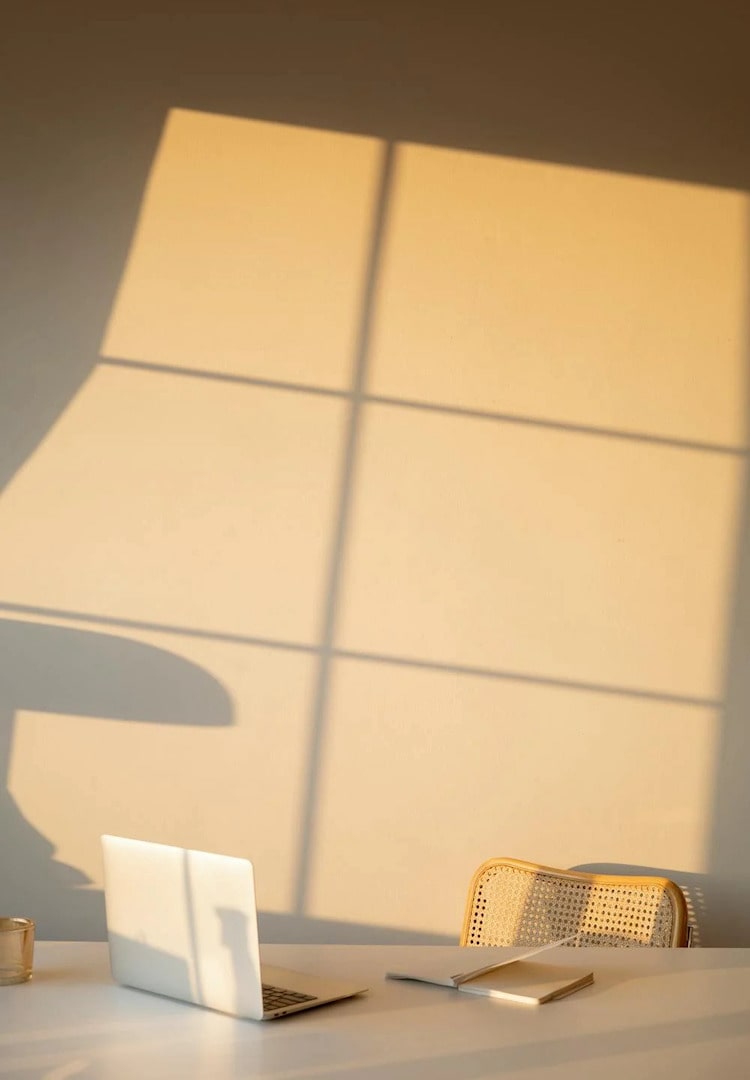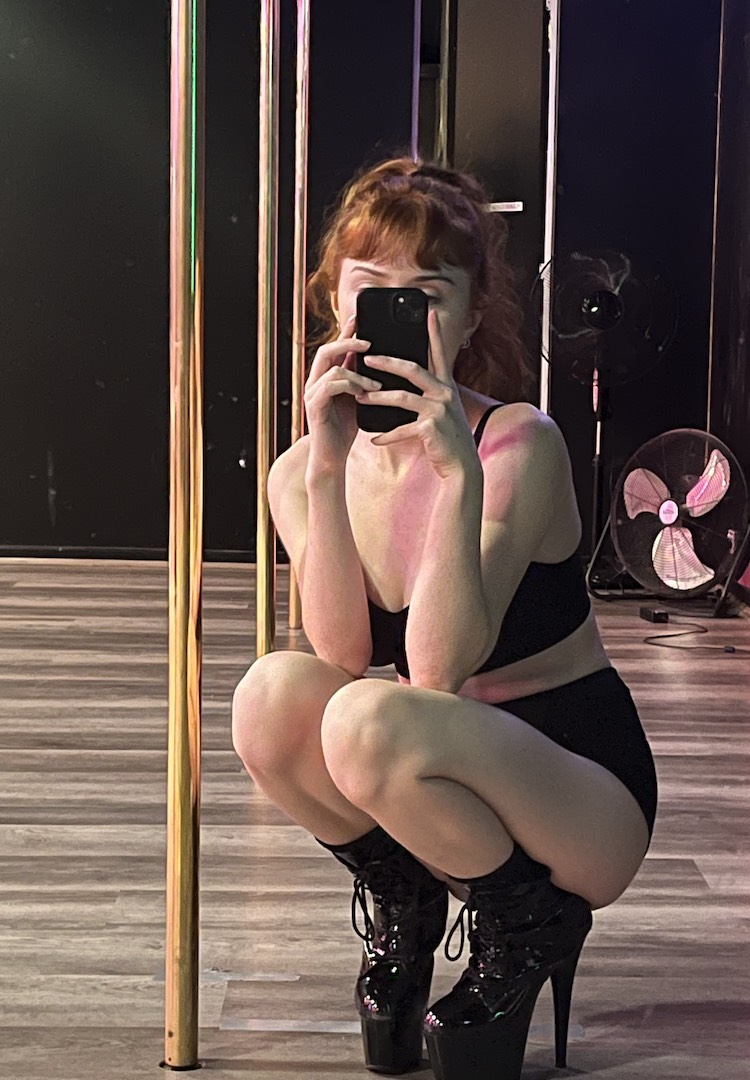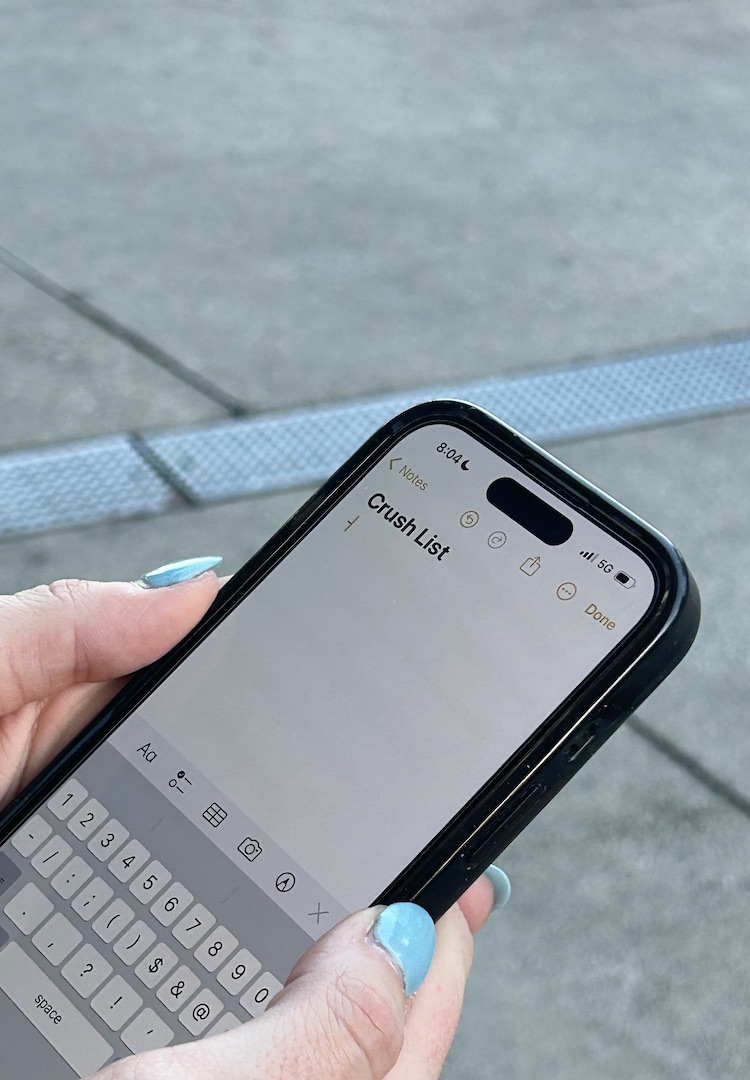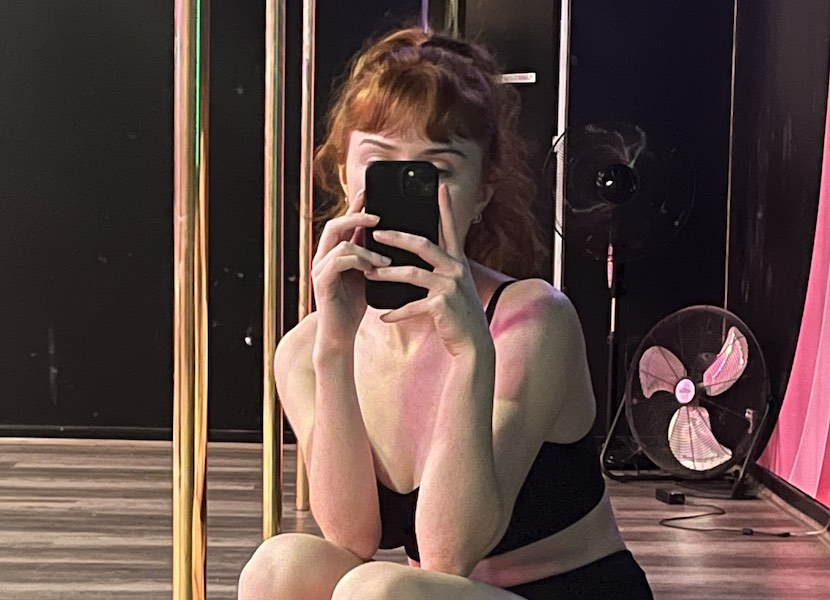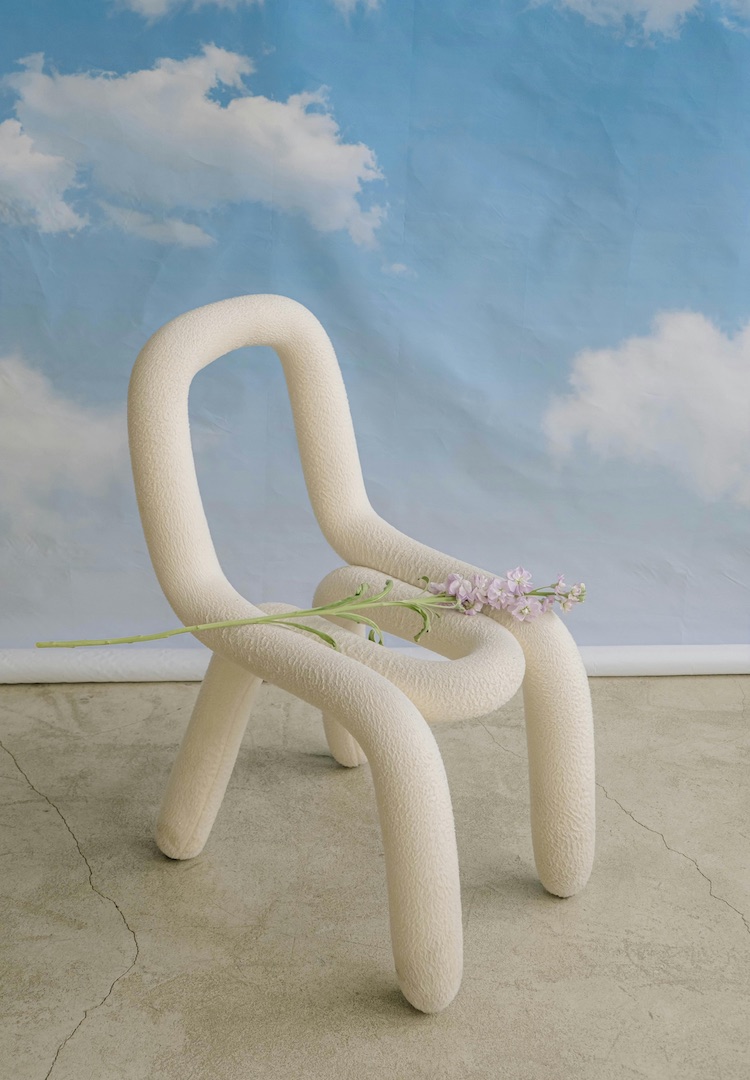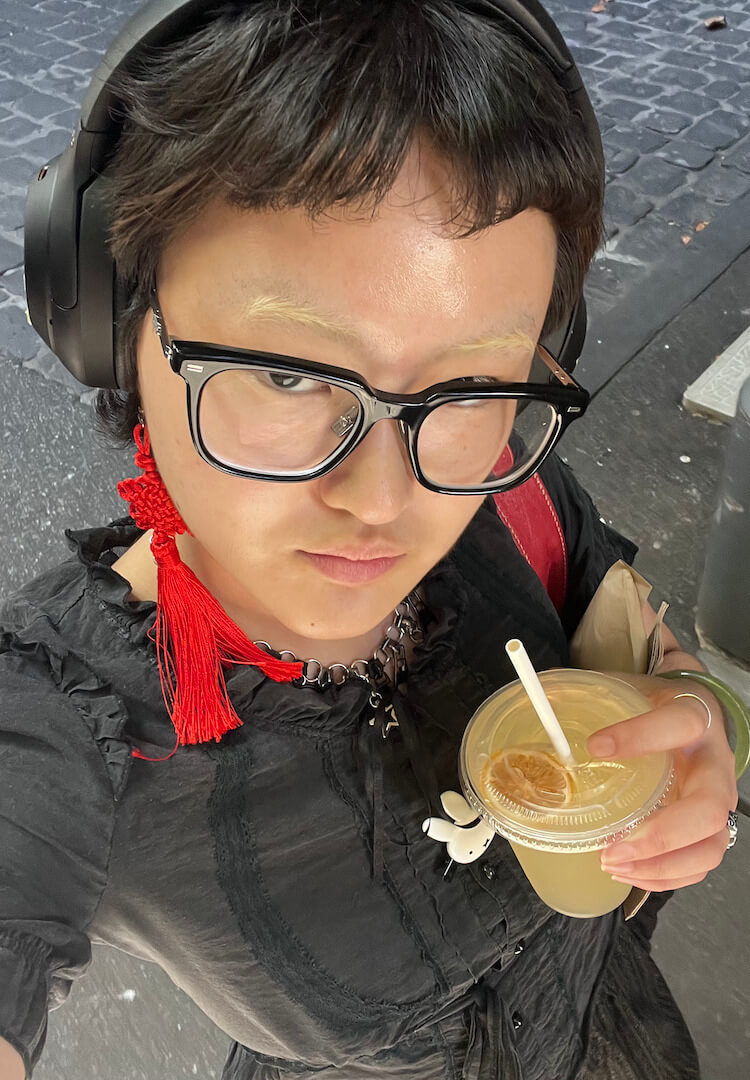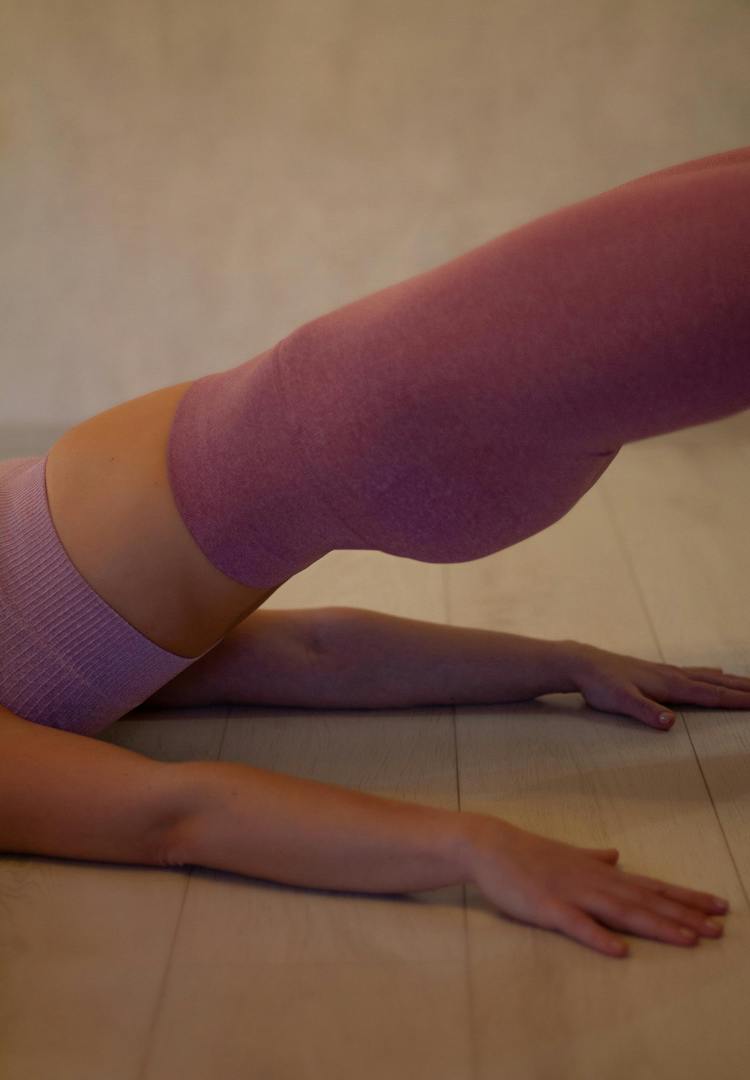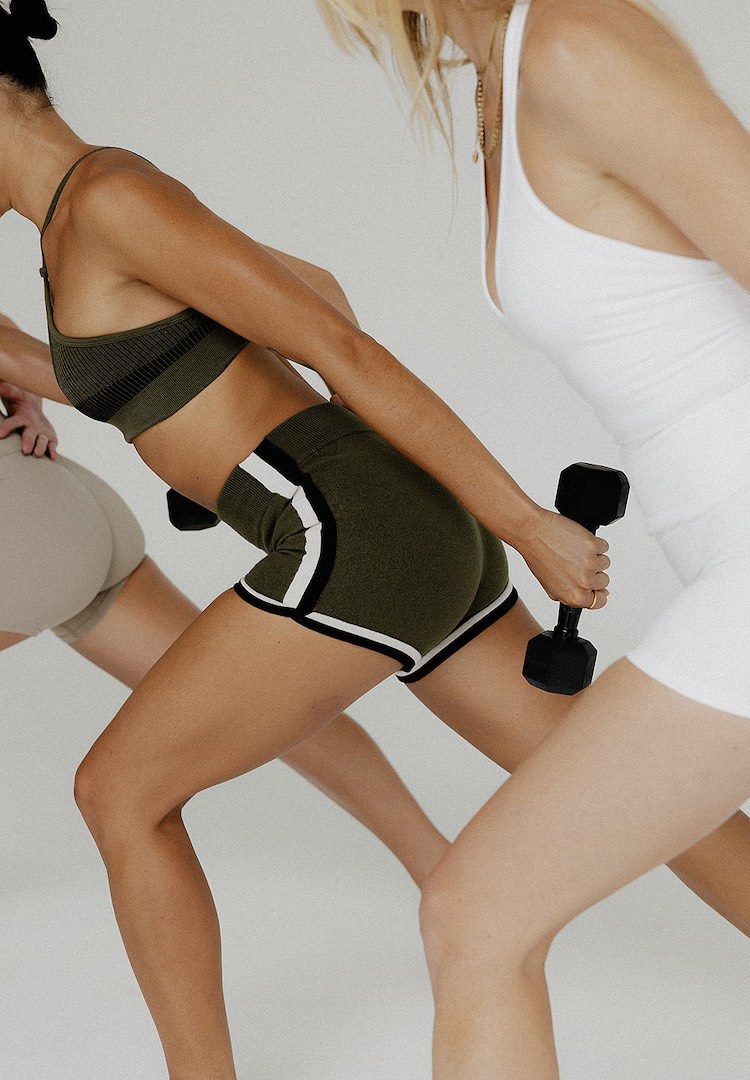Pole dancing made me face my internalised misogyny
WORDS BY Grace Flynn
“Pole dancing made me realise I didn’t want to be ‘hot’, at least not the kind of hot I was pursuing.”
In the midst of a small quarter-life crisis late last year, I signed up for a local pole dance studio. I’d done the solo travel, the bangs and the tattoo, so a new way to work out was the inevitable next step in my quest to become a certified Hot Girl.
Going to the gym was out of the question (too boring, too many icky men) as was hot Pilates after discovering it’s just an overpriced heat stroke simulator. I needed something fun and out of my comfort zone, but most importantly, something that would bring me closer to achieving the all-important and elusive status of ‘hot’.
Interested to hear how others navigate the world? Head to our Life section.
Dancing to bad bitch music and doing gravity-defying tricks on a pole, all while wearing seven-inch heels? That sounded like just the ticket. After starting a beginner’s course, however, I quickly learned just how out of my comfort zone pole would push me, physically and mentally, and just how far from ‘hot’ the whole endeavour really was.
Bruises bloomed like small flowers across my skin, I stumbled through sensual choreography like a terrified baby deer learning to walk for the first time and, at my lowest points, I wondered if I should have just joined a run club like every other confused person in their twenties. But, week after week, I came back to class.
Despite how hard pole is and how uncomfortable I felt watching myself do a reverse body roll for the first time (and that is very), I noticed I wasn’t tuning into the male gaze radio station that exists inside my head or scrutinising my appearance, as I had feared. I was too busy sharing in the struggle and eventual triumph of learning new tricks with a bunch of wonderful strangers, and, of course, shaking ass to Doja Cat.
Suffice to say, I was hooked. Ass shaking aside, a huge part of pole’s ability to empower comes down to the welcoming community it’s known for, a community that wouldn’t exist without pole dancers and instructors like Lola Grace.
Since starting her pole journey back in 2009, Lola has gone on to become a master of her craft, teaching pole classes in Sydney and beyond, all while winning numerous competition titles, including Exotic Generation Professional Flow World Champion (not once, but twice), in the process.
“I remember feeling this great sense of belonging to a small community of people who had this special skill, and feeling a huge sense of achievement when I would nail a new move or when a teacher would compliment me on my dancing. It felt empowering and addictive,” she recalls.
Of course, many people try pole and discover it’s not for them, but it seems twice as many fall head over heels for the sport (pole pun intended), and in her 15 years of pole dancing, Lola has developed a couple of theories as to why.
“Much of our lives are spent sitting down in chairs, slouching over computers, squishing ourselves onto bus or train seats, apologising for bumping into someone, trying to be as small as possible to be considerate,” she says.
“When you do a ‘layout’ or a ‘hello boys’ or a ‘layback’, you are forced to extend your limbs, to strike ‘power poses’. When you do a pirouette or a body roll, you are forced to open your chest, pull your shoulders back, lift your chin,” she explains. “I believe holding these power poses and acting confident, on a subconscious level, makes us feel more powerful.”
A second theory Lola has around pole’s mental health benefits, particularly surrounding body confidence, comes down to being desensitised to nudity and being forced to look at your reflection. “Rather than the body being hidden and unknown and scary, when you are surrounded by lots of different people who are scantily clad it kind of heals that unrealistic beauty ideal social media may have inserted in your head.
“Through pole dancing, you learn to appreciate your body for what it can do, not what it looks like. You learn to admire your body not because of superficial qualities, but because of how it moves.”
Lola’s theories aren’t just theories though. A study published in BMC Psychology on the psychological effects of pole found that in a randomised group of fifty women, those who undertook an eight-week course showed significantly improved body confidence, sexual self-esteem and overall mental wellbeing. The proof is in the research pudding.
But while greater recognition and acceptance of pole dance is growing, it would be remiss of me to overlook the stigma that continues to surround the sport, because it does. For me, this surfaced in the form of a very real fear of sharing any of my pole journey with the internet (this article will be my online debut of sorts), and the occasional uncomfortable reaction to telling people I pole dance (my GP awkwardly asked if it was the kind I got paid for).
For others, it surfaces in plain and simple misogyny, which is hardly surprising considering the world we live in is the same world where Andrew Tate rather unfortunately exists. However, according to Perth-based pole dancer and instructor Portia Rose, who openly shares her passion for pole on social media, there’s still hope yet for the de-stigmatisation of pole.
“I expected to face a lot of judgement because pole is what it is thanks to the strippers and sex workers who pioneered the artform,” she tells me. “These groups still face so much discrimination, and by extension pole dancing is still somewhat taboo because it’s all about the reclamation of one’s own sexuality. For women and femme-presenting people, our sexuality has always been commodified and used against us, so taking it back is a feminist subversive act!
“I thought people would shame me for embodying my sensuality through pole, but the response from all my peers and people on the internet has been overwhelmingly positive,” Portia tells me, adding that, online, even the straight men have been on their best behaviour. Who would have thought?
Although I’m only six months into my own pole journey, I can confidently report that not only can I now do a reverse body roll that doesn’t resemble a cat throwing up, but my relationship with my body is the best it’s ever been.
It may then come as a surprise that, contrary to my motivations for signing up, pole dancing didn’t magically grant me the ‘hot girl’ status I once coveted. Instead, pole made me realise I didn’t want to be ‘hot’, at least not the kind of hot I was pursuing. Because beneath the shiny hyper-capitalistic, white-girl-feminism front, it was still the male fantasy kind. The ‘You don’t know you’re beautiful and that’s what makes you beautiful’ by One Direction kind. The ‘Cool Girl’ monologue kind.
Once I stripped away (pole pun intended once again) societal expectations, I was able to find joy in moving my body, in embracing my sensuality and in doing it for myself and myself only. And that’s hot.
For more on pole dancing, head here.
